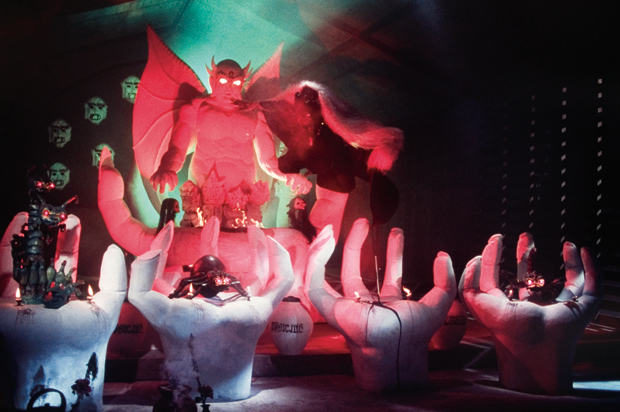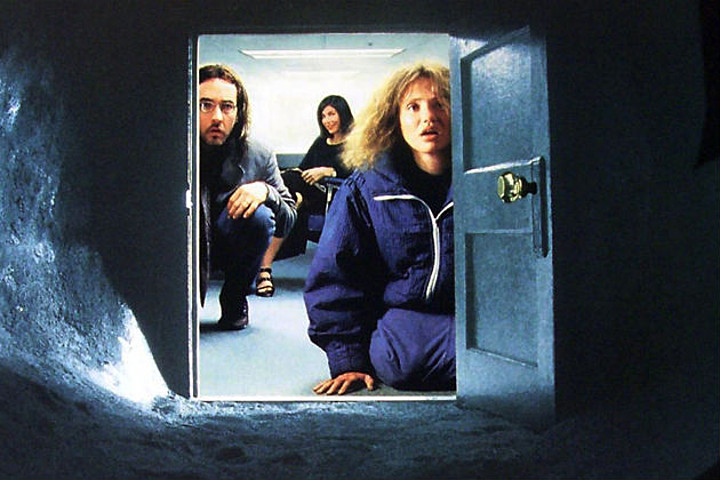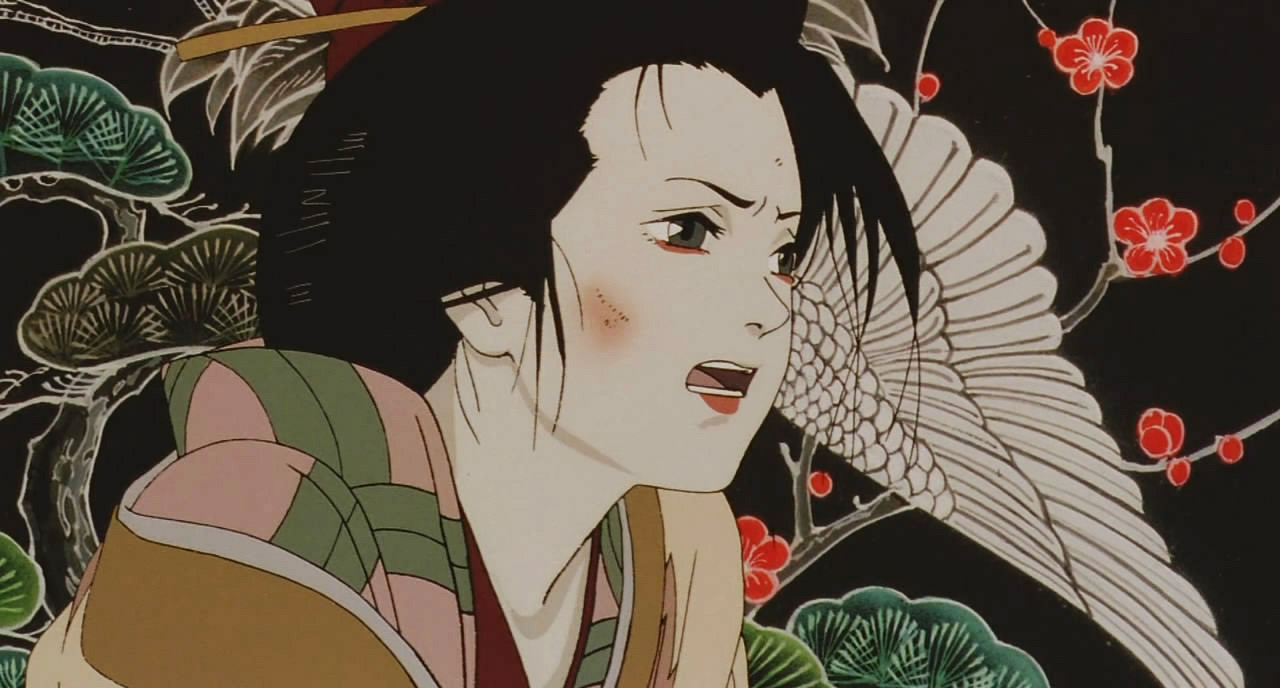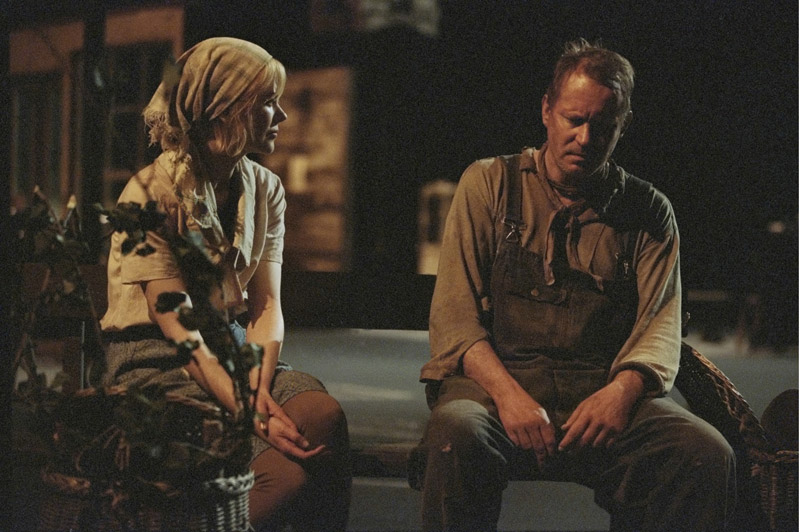6. The Boxer’s Omen (1983)

The Shaw Brothers were pumping out such an absurd number of martial arts flicks on a yearly basis in their heyday that by the mid-1980s more than a thousand Hong Kong titles bore their name. So, it’s rather understandable that most of their productions slipped through the cracks and didn’t make much of a splash in the West. That said, it’s still a crying shame this little cult item got lost in the shuffle and hasn’t become a classic midnight fixture yet. Just take our word for it: nothing can prepare you for the unhinged mayhem that is “The Boxer’s Omen”.
Even if you’ve already skimmed the plot synopsis and a few reviews on Letterboxd and think you have a sense of what to expect, rest assured — you’re in for far more than the gonzo story of a Thai boxer avenging his crippled brother and breaking an ancient Buddhist curse that’s been tormenting his family. Think again. Or simply picture this: reincarnated monks regurgitating food, chopping limbs off, fighting demonic bats, flying heads, and using crocodile skeletons as vessels for supernatural mummies (!) Crazy, right? And yet, somehow, none of that even cracks the podium of the film’s most gross-out goopy, batshit insane moments. Frankly, it’s so chaotic and demented that it’s hard to believe a movie like this actually exists in the first place.
7. Dreams (1990)

Despite leaving an indelible imprint in world cinema and putting together one of the most stacked bodies of works in cinema history, the Japanese film industry seemingly had little use for Akira Kurosawa by the early ’70s. The legendary director was all but forced to work and scrape together funding overseas, and it was only through the unwavering support of two of his most devoted admirers — George Lucas and Francis Ford Coppola — that he managed to bring his late-career war epics, “Ran” and “Kagemusha”, to life.
Around the same time while accepting an honorary Oscar at age 80, Kurosawa humbly remarked that he was only just beginning to see the possibilities of what cinema could be. If ever there were a test case to suggest that was the case, it might well be “Dreams”. Not simply a fitting swan song but also a profoundly humanistic and nakedly personal meditation on art, nature, and the boundless power of imagination, watching this eight-part anthology movie stripped directly from the director’s own dreams and hand-painted storyboards feels like experiencing color, composition, and cinematic storytelling anew.
From a power-plant meltdown and a fox wedding to a soldier confronting the ghosts of his fallen brother-in-arms, each segment is visually arresting and bursting with imagination. Yet it’s “Crows”, where Kurosawa journeys through Vincent Van Gogh paintings (with Martin Scorsese making a cameo as the Dutch artist) that stands out as the most memorable of the lot.
8. Being John Malkovich (1999)

Charlie Kaufman hit the ground running, earned his first Oscar nod, and instantly solidified his reputation as one of the most singular screenwriters in Hollywood after penning this outrageously outlandish, cracklingly funny, and wholly surreal brainteaser, starring John Cusack as a downtrodden New Jersey puppeteer who stumbles upon a secret portal that literally leads into the mind of the titular beloved character actor.
Part romantic comedy, part existential meta-commentary, and wholly an unpredictable joyride, “Being John Malkovich” tapped into the inner voyeur in all of us as well as our lingering desire to live vicariously through celebrities and escape the sour vagaries of our dull, pathetic everyday lives by mindlessly consuming escapist entertainment. In many ways it’s also film that grapples with fundamental questions about the perils of art and filmmaking, but for the most part it works and struck a chord with audiences because it juggles all these lofty themes with brilliant sleight of hand and much-needed levity. 25 years later, this cult favorite remains unlike any comedy that came before or after and the perfect gateway into the mad genius of Charlie Kaufman.
9. Millennium Actress (2001)

If the recent wave of full-hearted yet uninspired love letters to cinema (“The Fabelmans”, “Babylon”, etc.) that have become endemic at the multiplex in recent years has left you feeling maxed out on these kind of stories for the time being, watching Satoshi Kon’s rip-roaring, boundary-pushing sophomore feature should be enough to restore your faith on the entire sub-genre altogether.
Expertly bouncing through time and stretching in and out from the memories of a reclusive former Japanese actress (based on Setsuko Hara) who reflects on her personal life and screen career after being tracked down by a documentary crew, “Millennium Actress” is a dazzling assault to the senses that takes full measure of the boundless possibilities of the animated form to weave through key chapters in Japanese cinema history with a Mobius strip narrative structure that loops and folds in wildly unpredictable ways. Simply put, it is without a shadow of a doubt one of the single most imaginative, gorgeously crafted, and masterfully edited movies of all time, animated or otherwise (though Kon’s equally brilliant “Perfect Blue” and “Paprika” also merit their place in that conversation).
10. Dogville (2003)

Your average moviegoer would sooner gouge their eyes out with a rusty fork than endure a Lars von Trier movie. And honestly, can you really blame them? The nihilist and downright problematic provocateur behind “Antichrist” and “The House that Jack Built” obviously revels in the art of courting controversy, rattling censors, and pushing his audience through an emotional gauntlet.
Love him or hate him, though, there’s simply no denying the sheer brilliance of his 2003 masterpiece, starring Nicole Kidman as a desperate runaway pursued by cutthroat gangsters seeking refuge in a secluded Colorado mountain town. The film is entirely shot in a minimalist black soundstage roughly delineated by simple chalk outlines, which puts it squarely at the juncture between theater play and cinema but does take some time getting used to. But as soon as you tune into its warped wavelength, “Dogville” reveals itself as a scathing indictment of herd mentality that cunningly leverages our expectations to examine the unsavory implications of collective hatred, groupthink morality, and the banality of evil. Heavy stuff, for sure, but remarkably, also the most accessible and viewer-friendly entry in von Trier’s personal catalog.